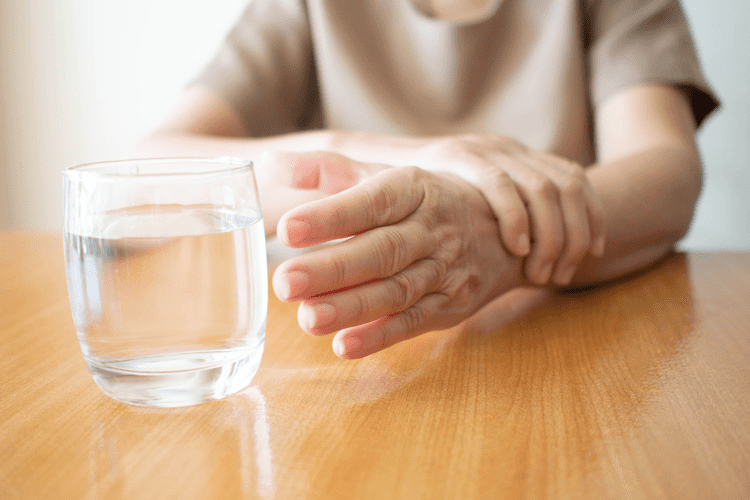Content
The user will feel subjectively relaxed and, in some cases, may experience a sense of euphoria or heightened wellbeing. Individuals may begin to turn to alcohol as it allows them to pay less attention to feelings of self-consciousness or awkwardness in social situations. Our treatment center is certified by theOhio Department of Mental Health and Addiction Services and accredited byThe Joint Commission . The facility is situated on over eleven acres in a quiet, residential neighborhood and complete with a serene view overlooking a golf course. We are ten minutes from Port Columbus International Airport and within a convenient driving distance to most areas in Ohio, Western Pennsylvania, and Michigan. Unlike traditional psychiatry, which rarely looks at the brain, Amen Clinics uses brain imaging technology to identify which of the 6 brain patterns of addiction you have, so you can get the most effective treatment. The Foundation for a Drug-Free World is a nonprofit, international drug education program proudly sponsored by the Church of Scientology and Scientologists all over the world.
- Tolerance means you’ll need more alcohol to feel the same effects you used to feel with less.
- They’ve shown that addiction is a long-lasting and complex brain disease, and that current treatments can help people control their addictions.
- No professional medical association recommends that people who are nondrinkers should start drinking.
- This is an ominous turn of events, recognized by uncontrollable shaking, high fever, cardiac arrhythmia, profound confusion and hallucinations.
The role of corticotrophin-releasing factor in stress-induced relapse to alcohol-seeking behavior in rats. Neuroplasticity in brain reward circuitry following a history of ethanol dependence. Brady KT, Sonne SC. The role of stress in alcohol use, alcoholism treatment, and relapse. Hypothalamic-pituitary-adrenal axis functioning and cerebrospinal fluid corticotropin releasing hormone and corticotropin levels in alcoholics after recent and long-term abstinence.
Alcohol dependence is characterized by fundamental changes in the brain’s reward and stress systems that manifest as withdrawal symptoms when alcohol consumption is stopped or substantially reduced. These changes also are purported to fuel motivation to reengage in excessive drinking behavior. Repeated bouts of heavy drinking interspersed with attempts at abstinence (i.e., withdrawal) may result in sensitization of withdrawal symptoms, especially symptoms that contribute to a negative emotional why is alcohol addictive state. This, in turn, can lead to enhanced vulnerability to relapse as well as favor perpetuation of excessive drinking. Cognitive behavioral therapy , which is an evidence-based form of therapy that focuses on helping people identify and change unhelpful, negative thoughts and behaviors that led or contributed to their addiction. Misuse, problem use, abuse, and heavy use of alcohol refer to improper use of alcohol, which may cause physical, social, or moral harm to the drinker.
What Are Drugs And Alcohol Addiction?
Alcoholism, clinically referred to as alcohol use disorder , is a common, chronic, and sometimes-progressive medical condition that involves the compulsive consumption of alcohol. Such maladaptive patterns of drinking can lead to several serious social, familial, and physical consequences. Fortunately, there are highly-effective and diverse alcoholism treatment programs available to people with mild-to-severe AUDs. Because alcoholism is a progressive disorder, its impacts and risk for health problems will get worse with prolonged use. For this reason, treating an AUD is easiest when done in the early stages.
Alcohol is the most available, widely consumed, and widely misused recreational drug. Beer alone is the world’s most widely consumed alcoholic beverage; it is the third-most popular drink overall, after water and tea. Some of the possible long-term effects of ethanol an individual may develop. Additionally, Sober living houses in pregnant women, alcohol can cause fetal alcohol syndrome. Drinking earlier — One study found that among people ages 26 and older, those who began drinking before age 15 were more than five times as likely to report having AUD as those who waited until they were of legal age to begin drinking.
How Legality Impacts Addictions
This is a dangerous practice, as it turns into a destructive cycle. About one-third of people with a mental health disorder are also struggling with alcoholism. People with both a mental health disorder and alcoholism end up having what’s known as co-occurring disorders. These have serious side effects that can inflict long-term physical and psychological damage on your body.

It does this by switching on brain circuits that make you feel wonderful, which then motivates you to repeat those behaviors. In contrast, when you’re in danger, a healthy brain pushes your body to react quickly with fear or alarm, so you’ll get out of harm’s way. If you’re tempted by something questionable—like eating ice cream before dinner or buying things you can’t afford—the front regions of your brain can help you decide if the consequences are worth the actions.
Who Suffers From Addictions?
However, there are certain factors that can influence a person’s chance of becoming addicted. Endorphins lead to feelings of relaxation, pleasure, and satisfaction. Many experts will disagree between the similarities and differences between drug and alcohol addictions because both are forms of addiction.

Alcohol can lead to physical dependence as well as a psychological focus on the drug. When people use alcohol to mask unpleasant feelings, they may end up psychologically dependent on the substance. People who use alcohol to cope with anger or sadness may lose interest in other relaxation methods. Ondansetron and topiramate are supported by tentative evidence in people with certain genetics. Evidence for ondansetron is more in those who have just begun having problems with alcohol. Topiramate is a derivative of the naturally occurring sugar monosaccharide D-fructose. Review articles characterize topiramate as showing “encouraging”, “promising”, “efficacious”, and “insufficient” evidence in the treatment of alcohol use disorders.
Looking For Treatment?
The PFC acts as the brain’s supervisor and is involved in impulse control, judgment, planning, follow through, decision-making, and attention. When the PFC is underactive, people can be easily distracted, bored, inattentive, and impulsive. This type is often seen in conjunction with ADD/ADHD and is more common in males. “Kicked out of my home at age sixteen, I was homeless and started begging for money to buy drinks.

Alcoholism, now known as alcohol use disorder, is a condition in which a person has a desire or physical need to consume alcohol, even though it has a negative impact on their life. It may also cause fetal alcohol syndrome, resulting in giving birth to a child who has physical and developmental problems that last a lifetime. Alcohol withdrawal can occur when alcohol use has been heavy and prolonged and is then stopped or greatly reduced. Signs and symptoms include sweating, rapid heartbeat, hand tremors, problems sleeping, nausea and vomiting, hallucinations, restlessness and agitation, anxiety, and occasionally seizures. Symptoms can be severe enough to impair your ability to function at work or in social situations. Alcohol intoxication results as the amount of alcohol in your bloodstream increases.
Alcohol Dependence, Withdrawal, And Relapse
Lastly, all teenagers undergo significant life transitions from the changes that happen to their bodies and minds during puberty. However, other major upheavals in their lives, such as moving, illness, divorce, relationship problems, and death of a family member can make drinking or other substance use more likely as they try to find a way to ease their pain. A new, first-of-its-kind study reveals a key link between alcohol consumption and poor sleep quality in a large sample of men and women. Drinking a small amount can help people feel relaxed, but too much, too often, can be harmful for health. However, a person who has been consuming unhealthy amounts of alcohol for a long time is likely to become sedated when they drink. Complications of this condition may include memory loss, confusion, mental health issues, and problems with work or home life. Many people who consume unhealthy amounts of alcohol deny that alcohol poses a problem for them.
After years of abuse, doctors told me there was irreparable harm to my health. Sober living homes, vocational training and family counseling can aid a person’s transition back to society after treatment. These resources increase a person’s ability to find purpose, connect with the community and rebuild relationships. Treatment for addiction takes many forms and depends on the needs of the individual. In accordance with the American Society of Addiction Medicine, we offer information on outcome-oriented treatment that adheres to an established continuum of care. In this section, you will find information and resources related to evidence-based treatment models, counseling and therapy and payment and insurance options. Someone who didn’t have present parents in their childhood or had a poor family foundation is a prime candidate for alcoholism.
Social Causes
In 1979, the World Health Organization discouraged the use of “alcoholism” due to its inexact meaning, preferring “alcohol dependence syndrome”. Certain factors like age, family history, genetics, and others, can make a person more at risk of developing alcohol use disorder . The presence of any of the below factors can make a person more at risk of developing alcohol addiction.
The withdrawal process is very challenging and difficult to go through, as the brain and body crave the level of alcohol they are accustomed to receiving. Avoiding withdrawal is a strong motivator for an alcoholic to continue to drink. This can create a vicious cycle, where the alcoholic drinks to avoid the stress of withdrawal. Alcoholism, like other addictions, is ultimately a learned behavior, and a person’s thoughts and beliefs come into play.
Heavy regular drinking can seriously affect a person’s ability to coordinate their muscles and speak properly. A person may go to the doctor about a medical condition, such as a digestive problem, and not mention how much alcohol they consume. This can make it difficult for a doctor to identify who might benefit from alcohol dependency screening. The criteria include having a pattern of consumption that leads to considerable impairment or distress. Alcohol interferes with the release of glucose from your liver and can increase the risk of low blood sugar . This is dangerous if you have diabetes and are already taking insulin to lower your blood sugar level.
Is it better than tobacco and sigarettes? Yes. Not as bad as the lasting effects of alcohol abuse? Yes, by far. Is it still good? No, it's not. It may not be addictive to you but it can be addictive to many people and it is a starting drug many times as well. Why defend it?
— christian impollonia (@cimpollonia) December 9, 2021
From a clinical standpoint, this is important because it underscores the value of these models in identifying and evaluating new treatment strategies that may be more effective in battling the problem of relapse. NIH-funded researchers are also evaluating experimental therapies that might enhance the effectiveness of established treatments. Mindfulness meditation and magnetic stimulation of the brain are being assessed for their ability to strengthen brain circuits that have been harmed by addiction.
